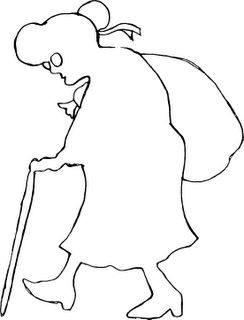So many of my memories of Dad are tied up with winter. He had an almost missionary zeal about fighting and prevailing against everything that winter could administer.
Well, with
Countless times I can recall him getting out of the car to shovel our family through yet another drift on the road; on open country gravel roads, those were numerous. My mother had no patience for it, but nevertheless she was along for the ride. To me, it was an adventure.
We had gone over to some neighbors, about five miles away, to buy some eggs and cream. Of course, we visited a while, while a winter storm struck. Dad insisted on heading home, though after the umpteenth snowdrift, my mother wanted to go back to the neighbors’ (though she didn’t really want to stay there). We did get home.
My dad was around 60 then (I was born when he was almost 53). I do marvel at his stamina.
I attended a one-room country school in grades 1–4, and on two occasions we students and teacher nearly ended up spending the night. Back in the mid- and late ’60s, no one could predict blizzards.
The first time, we set out for the home of two of the students, which was nearest at ½ mile away. It was already dark at this point, but still we set out (on foot) and made it. Various parents who dared to and could came to retrieve their children. Of course my dad did, with the assistance of my uncle.
The next time it wasn’t quite so late—we were still at the school—and once again we reached safety and warmth at home. With my mother once again reciting her litany of moving south.
Fast forward to after I got my driver’s license. For some reason, Dad and I were heading to a town 20+ miles south, in a snowstorm (of course). The roads were snowy and slick. I just had to drive. Before automatic braking systems, with rudimentary power steering, he calmly tutored me in his strategies (I still can’t believe he didn’t have a stroke!). We didn’t end up in a ditch (though I’ll admit that I did some years later, with a front-wheel drive—he didn’t know about those).
Embrace the steering wheel, joining hands at the top. Support your weight on the steering wheel. With the slightest deviance of grip, you’ll feel it in the wheel. Your weight will adjust to the grip and correct the steering.
I don’t think I can drive in wintry conditions with these fancy-schmancy computer-controlled cars (hey, even ABS on rental cars give me a bit of a heart attack). How to deal with winter driving conditions in this millennium?
